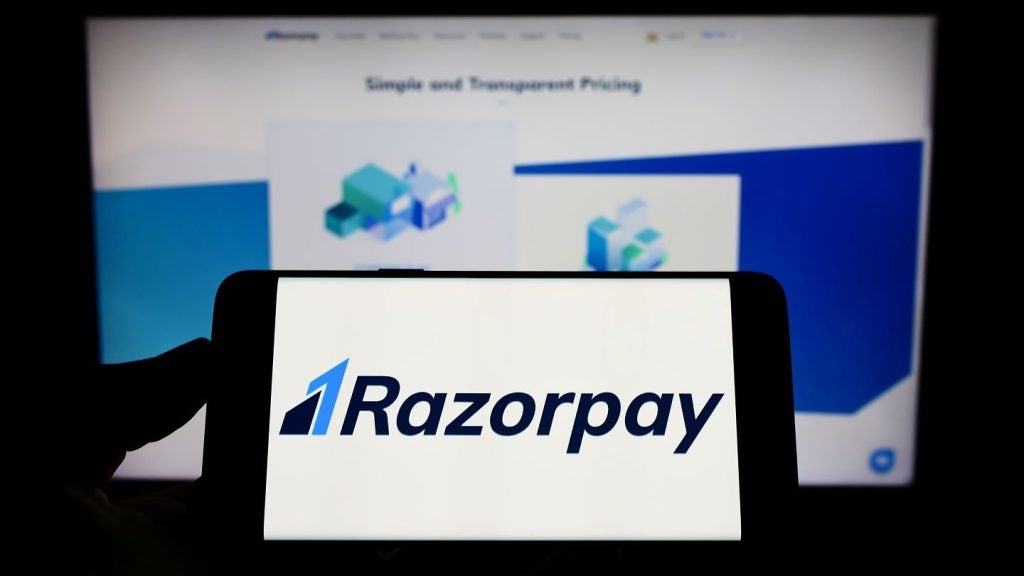The latest report from VRL, publisher of
Cards International, shines the spotlight on the burgeoning Islamic
financial services sector. In this extract, the report describes
how Islamic Sharia-compliant payment cards work, with examples of
successful products from Islamic financial service providers.
Sharia-compliant credit cards are almost
unheard of in Europe and the US, but since their introduction five
years ago in Southeast Asia and the Middle East, their presence has
rapidly become widespread.
The cards have a range of operational models,
but as they all have to comply with the rules of Islamic Sharia,
which does not allow interest to be charged, there are several key
features these cards have in common.
One of the major requirements of
Sharia-compliant credit cards is the presence of an underlying
Sharia-compliant business transaction, which is incorporated to
make the credit card facility comply with the rules of Islamic
Sharia. These transactions can be based on 4 concepts:
• Murabahah: instead of lending out money, the
bank purchases the desired commodity (for which the loan would have
been taken out) from a third party and resells it at a
predetermined higher price to the borrower. By paying this higher
price over instalments, the borrower has in effect obtained credit
without paying interest.

US Tariffs are shifting - will you react or anticipate?
Don’t let policy changes catch you off guard. Stay proactive with real-time data and expert analysis.
By GlobalData• Tawarruq: also known as reverse Murabahah,
where a customer in need of liquidity buys goods on credit from a
bank on a deferred payment basis and then resells it for cash to a
third party, thereby enabling the customer to obtain cash without
taking an interest-based loan.
• Bai Al Inah: the bank sells an asset to the
customer on a deferred payment basis, and then the asset is
immediately repurchased by the bank for cash at a discount. The
buying-back agreement allows the bank to assume ownership over the
asset in order to protect against default without explicitly
charging interest in the event of late payments or insolvency.
• Ijarah: instead of lending money and earning
interest, ijarah allows the bank to earn profits by charging
rentals on the asset leased to the customer.
Typically, an Islamic credit card product is
constructed in such a way that the financial institution does not
benefit from any penalty charged on late payment of an outstanding
balance.
In some cases, banks allow customers to delay
the payment of their outstanding balance. In other instances, the
revenue generated from the imposition of a fee is donated to
charity.
Some players have attempted to retain a
portion of late fees on account of payment recovery costs from the
customer.
Most Sharia-compliant credit card products
charge a fixed fee on their cash withdrawal service. This is
because of the restriction imposed by Sharia boards on banks
deriving financial benefit from cash lending, that is proportionate
to the amount withdrawn.
Therefore, banks charge fixed fees for cash
delivery services, which are not linked to the amount withdrawn by
the customer.
All Sharia-compliant cards restrict customer
usage to permissible activities. This involves blocking certain
transactions and merchants considered to be undertaking activities
prohibited by Islamic Sharia. This most frequently means alcohol
and gambling.
Types of Islamic credit
cards
Sharia-compliant credit cards
currently offered by banks can be broadly categorised into five
different models: fixed fee on card subscription, fixed fee on
revolving facility, fixed mark-up on credit limit, variable mark-up
on revolving balance and fixed mark-up on point of sale
transactions.
Credit cards based on the fixed fee on card
subscription model allow the customer to defer payment of the
amount outstanding for a longer period and stagger payments in
equal instalments during this period. The bank charges a fixed
subscription fee to provide this facility. The customer is
principally charged on account of usage of the whole package and
not for the provision of a credit facility.
The fixed-fee model is considered more
acceptable by Sharia scholars. Kuwait Finance House in Kuwait, Arab
National Bank in Saudi Arabia, Emirates Islamic Bank and ABC
Islamic in Bahrain offer credit cards which are based on this
model.
For the fixed fee on revolving facility, banks
such as Sharjah Islamic Bank allow customers to revolve their
outstanding debt and charge a fixed fee once the customer has
started using this facility. The bank charges a processing fee if
the customer defers payment of the outstanding balance after the
due date to the next payment cycle.
This model is less acceptable to Sharia
scholars as they view it as a way for banks to benefit from the
provision of a credit facility to the customer. Some players, such
as Abu Dhabi Islamic Bank, charge a fixed mark-up on the credit
limit provided to the customer on his credit card.
The mark-up rate is agreed upon between the
bank and the customer at the time of issuance of the card. It is
carried out by executing a Tawarruq transaction when the customer
is offered the credit facility. The bank reimburses the mark-up to
the customer on the unused credit facility.
Although this product is based on
Sharia-compliant Tawarruq transactions, it closely follows the
attributes of conventional credit cards.
National Commercial Bank (NCB), SAMBA in Saudi
Arabia, Bank Islam Malaysia and Arab Malaysia Bank offer credit
cards based on the variable mark-up structure.
The bank’s charges are proportionate to the
value of outstanding credit rolled over by the customer. The
products offered by Bank Islam Malaysia and Arab Malaysia Bank are
based on Bai Al Inah, while those offered by NCB and SAMBA are
based on a Tawarruq transaction.
In both types of product, the underlying
transaction is executed whenever the customer rolls over
outstanding credit to the next payment cycle. Such products are
highly controversial as they mimic conventional card products in
all their attributes.
Kuwait Finance House in Bahrain has an
Ijarah-based card, in which the customer is allowed to purchase
consumer durable goods on the bank’s behalf. The bank subsequently
leases the goods purchased back to the customer.
For the fixed mark-up on point of sale
transactions, players such as Shamil Bank offer a credit card
facility which allows the customer to defer their outstanding
balance at the end of the payment cycle.
The customer is offered the facility to
stagger the payment over a period of 12 months. The bank charges a
fixed fee proportionate to the transaction value at the time of
purchase.
Key growth drivers
The onset of Sharia-compliant credit
cards has been supported by a section of the Islamic banking
industry as a means of gaining business from conventional banking
to Sharia-compliant banking services. They argue that, at this
stage, the Islamic banking industry needs to be supported against
the much stronger and better-established conventional banking
industry.
Proponents of Sharia-compliant credit cards
argue that such products satisfy certain legitimate customer needs
which otherwise would be left unfulfilled.
They argue that customers are in need of
immediate cash flow when, for instance, they need to pay for
medical, education and training services. As asset-backed
activities would not be able to pay for such facilities, credit
cards offer the best payment mechanism.
In addition, credit cards are also a good
customer acquisition tool for any banking institution. The
newly-established Islamic financial institutions in GCC countries
and Southeast Asia are eager to expand their customer bases.
In this situation, credit cards offer them a
good opportunity to acquire customers, so that they can cross-sell
these clients other products.
Unlike mortgages and vehicle finance schemes,
in which market dynamics as well as local laws and regulations play
a major role in the product manufacturing and marketing process,
Sharia-compliant credit cards can be replicated and introduced
across markets with relative ease.
Challenges
One of the major issues with credit
cards which are made to comply with Sharia requirements is the
objection raised by Islamic scholars to the introduction of such
products.
Many of these scholars are represented on the
Sharia boards of major financial institutions across the world and
product managers face difficulties in getting their credit card
proposals approved.
One important objection raised by Sharia
scholars and stakeholders in the industry is the tendency of credit
cards to promote and benefit from the irresponsible accumulation of
debt by the customer.
Such behaviour is strongly discouraged by
Islamic Sharia. Furthermore, credit card products are opposed on
the grounds that they lead customers towards greater spending and
consumerism.
A major weakness of the Sharia-compliant
credit cards currently available in the market is their lack of
product differentiation and unique value proposition.
Some industry stakeholders argue that, unlike
Sharia-compliant mortgages and vehicle financing schemes, so-called
‘Islamic’ credit cards try to mimic rather than differentiate
themselves from conventional products.
This results in the failure of either the
customer or financial institution to derive tangible economic
benefit.
Financial institutions typically introduce
certain fees and charges in credit card products to derive economic
benefit from their use. Such features are also typically introduced
in Islamic credit cards.
This behaviour goes against the basic rule of
Islamic Sharia, advising transparency and information disclosure to
the customer at the time when the product is sold to the
customer.
The prime reason against Islamic credit cards
is the artificiality of the economic activity which is the basis of
getting certification of Sharia compliance for the products. For
instance, with the card products in which Tawarruq is used as a
mechanism for getting Sharia compliance, neither customer nor bank
has any interest other than to generate cash when the commodity
sale and purchase is executed.
From a business perspective, the inability of
the credit card company to benefit from late fee charges in case of
delinquency reduces risk adjusted return.
Most Sharia-compliant credit cards charge a
flat fee for cash withdrawal. This encourages the customer to use
the card to borrow cash and results in loss of interchange fee for
the bank. Furthermore the credit card product is transformed into a
personal loan facility rather than a payment facility for customer
purchases.
The Survey of Global Islamic Finance
is published by VRL. To purchase a copy of the report or to receive
more information, please contact Shouvik Sen on +44 (0) 20 7563
5615 or shouvik.sen@vrlfinancialnews.com







